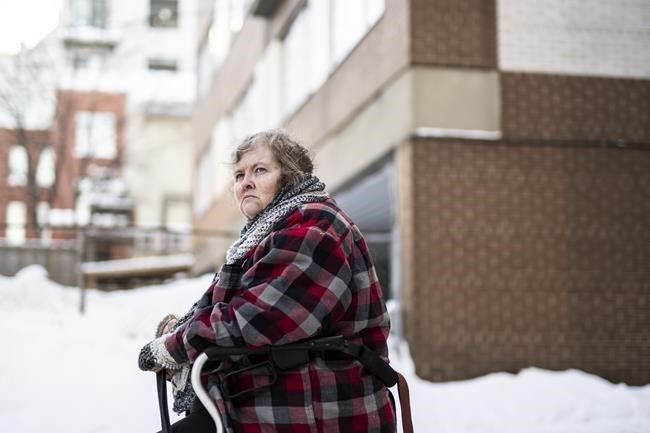OTTAWA — Some days, Terrie Meehan goes long stretches eating just one meal a day to stretch out her food supply.
The $1,100 a month she receives from the Ontario Disability Support Program just doesn't stretch that far.
That won't change for Meehan — or the vast majority of the Ontarians who receive aid under the program — when the Ontario government today starts allowing recipients to earn more money from working before clawing back their benefits.
The change will allow ODSP recipients to earn $1,000 from working, up from $200 previously. For each dollar earned above the $1000 exemption, the person with disability would keep 25 cents.
But like Meehan, 95 per cent of ODSP recipients will see no change to their monthly income as a result. She said many of her friends are in the same boat as her and she isn't sure how she feels about the government making the change.
"I feel suspicious … when this government is very punitive to those of us who are stuck on assistance," said Meehan.
In addition to her ODSP benefit, she earns a few hundred dollars a month picking up gig work when she can, like using her wheelchair to deliver Uber Eats.
After paying her monthly bills, and for medication and food she said most months she maybe has $200 left. Sometimes it's less.
"I do not get enough," said Meehan. "I was considering earlier today looking at how long it would take me to pay back a payday loan."
The Ontario auditor general said in 2018-19, 510,000 people received ODSP support. When the provincial government announced it was increasing the earning exemption it said it would help 25,000 people.
Trevor Manson, a co-chair with the ODSP Action Coalition and an ODSP recipient, said the exemption will help those who work, but it doesn't come close to solving the issue that many ODSP recipients are facing. He called their situation "legislated poverty."
"We know that the vast majority of people on ODSP are unable to work," Mason said. "So it's not really going to make that much of a difference for the vast majority of people on the program."
In September 2022 the provincial government increased program payments by 5 per cent. The change increased the maximum payment by $58 a month, to $1,228.
It will be adjusted based on inflation in June.
Jennifer Robson, an associate professor and program director of political management at Carleton University, said the earnings exemption increase in no way closes the gap to get ODSP rates up to an acceptable minimum.
"In a city like Ottawa a single person needs a little over $25,000 (a year) just to stay at the poverty line," said Robson.
With the maximum ODSP benefit a month, plus earning $1,000 from working, the monthly income of a person on ODSP would just barely exceed that.
Robson said Ontario could learn from a Quebec pilot program launched in January.
The new basic income program is for people with severe limitations on their ability to work, including those with disabilities. The basic benefit is $1138 per month, but can be higher depending on an individual's circumstances.
For Meehan, working is a variable thing. She says that she never knows what kind of jobs she can get. In December she was able to work a Christmas job and worked every day. But she ended up earning too much money, which left her January ODSP payment at $0.
If she could get a consistent part-time job she would take it in a heartbeat.
She paid her rent this week by saving her December earnings, and is nervous how she's going to keep affording groceries as food prices skyrocket.
"I had to make sure I saved that money from December so that my bills will at least get paid, food — oh," Meehan paused. "I'll figure it out when I figure out."
"Anyone can be in this situation for any reason in a heartbeat," said Meehan.
"People don't get to choose whether or not they have a health issue or have an accident and can't work."
This report by The Canadian Press was first published Feb. 1, 2023.
———
This story was produced with the financial assistance of the Meta and Canadian Press News Fellowship.
Cindy Tran, The Canadian Press

